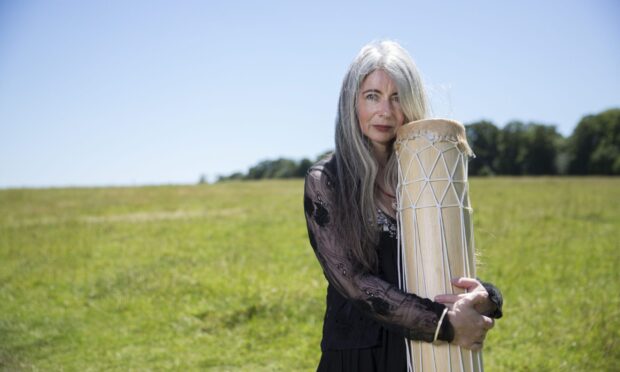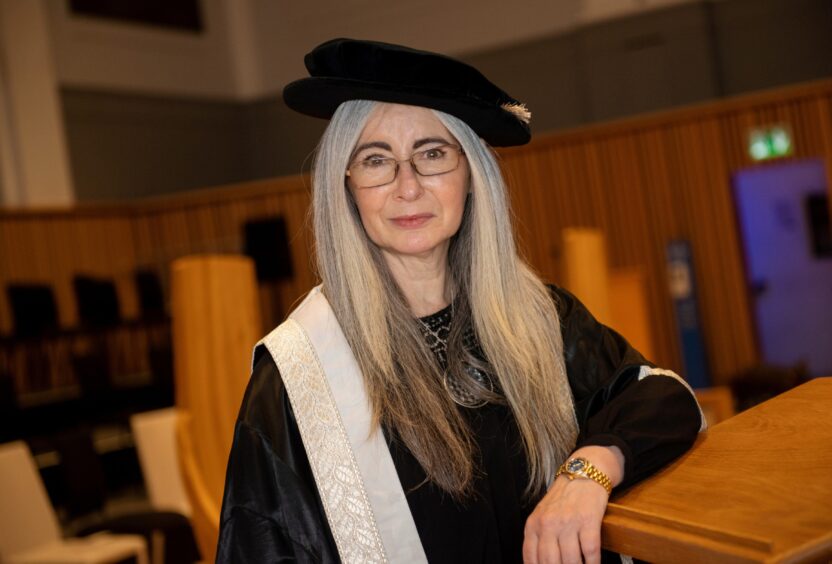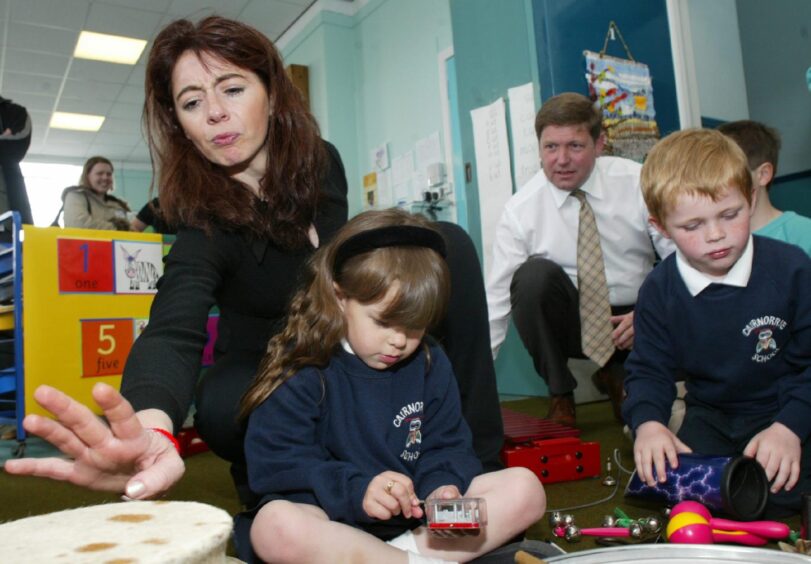Growing up in Aberdeenshire, Evelyn Glennie was able to count on the support and hard work of teachers who helped propel to her a remarkable career in music.
Already a Dame, she was being rewarded again on November 29 as an honorary doctor of music at St Andrews University.
It’s another remarkable moment for a woman whose hearing declined quickly from the age of eight.
She overcame multiple barriers, studied in London and become a proficient pianist then percussionist, for which she is now known around the world.
But looking at the different way people make music, and the squeeze on budgets, will young people get the same chances to go on and have a rewarding career?
Speaking to the Press and Journal, Dame Evelyn’s obvious positivity is tinged with some concern.
Music is relied on in times of crisis.
– Evelyn Glennie
On one hand, she is “exasperated” by political choices when it comes to music in schools and society.
But she sees amazing opportunity through technology, and is embarking on an ambitious plan to reach even more people through a new charitable foundation.
Aberdeen-born Dame Evelyn, 58, is also chancellor at Robert Gordon University – a role she is using to influence how people look at other subjects including engineering and medicine.
She notes these are changed days from her time growing up in Methlick and going to Ellon Academy in the 70s and 80s when computers were only starting to enter classrooms.
“Kids are not being exposed to the learning process of a musical instrument as much anymore,” she says.
“However, there is a higher percentage of kids dealing with music production, with creating really interesting things whereby their instrument is a computer.
“Kids don’t have to play a musical instrument in order to be part of the music profession.”
‘Music is universal’
Music departments and instrument tuition are often seen as easy targets when budgets are squeezed from the government all the way down.
It’s a situation Dame Evelyn rails against.
“The word ‘soft’ is attached to the arts, and I’ll never understand that,” she says.
“Music is relied on in times of crisis. If someone wants to make something better, let’s get the musicians out and build those bridges. It’s just ridiculous and quite exasperating to be honest.
“Music is universal. Every culture has their musical traditions. It boosts academic achievement, reduces isolation. It can be like our daily medicine in a way.”
She worries too many politicians don’t talk about music and art with the same passion she thinks it deserves.
“It certainly isn’t coming through in the language that is used,” she adds. “We need to make sure music persists beyond childhood. What we’re spending on people’s wellbeing in later life, a lot of that could potentially be addressed if people had this experience of the sharing of music, whether it’s the use of voice, a choir, a group.”
The Evelyn Glennie Foundation
Now based in Cambridgeshire, she is putting together the finishing touches to her own new charitable organisation, the Evelyn Glennie Foundation.
Sadly, the honorary president of her organisation, Ann Rachlin, died last week, she says.
Ms Rachlin played a crucial role in Dame Evelyn’s move from Aberdeenshire to international fame.
Already a respected educator, she wanted hearing impaired children to experience music. She set up the Beethoven Fund for Deaf Children in 1976.
A teacher called Sandra Buchan was inspired to write to Ms Rachlin about her young, gifted pupil, who was just 15 at the time.
Ms Rachlin wrote back and a meeting was arranged.
Big break at the Albert Hall
“That possibility came through being part of being in the percussion group at school, that consisted of different pupils in the north-east,” Dame Evelyn recalls. “We had the opportunity to go to Croydon, then those who won the category went to the school’s prom at the Albert Hall.
“Can you imagine children, 12, 13, 14-years old, going to the Albert Hall, being bussed down there and that gave me the opportunity to meet Ann and her husband at the time, Ezra.”
In the years since, Dame Evelyn has recorded more than 40 CDs, is a double Grammy award winner and Bafta nominee. She was awarded an OBE in 1993.
Now looking to complete her foundation, Dame Evelyn is determined to “teach the world to listen”.
Her work involves finding entry points – as diverse as prison, schools and hospices – for people to understand how music can fit in to other disciplines.
She’s looking at the long history of sound, how it can seen in physics, acoustic design and engineering, even posture.
Back to Ellon?
Thinking of her long and rewarding career, does she have the chance to make more of her north-east background?
She’s in Aberdeen for RGU graduations in December. And she’s involved with Big Noise Torry.
Would she like to return to Ellon Academy and inspire a new generation?
“I think I would, there could be an opportunity there,” she says.
“It’s good for any youngster, not just me, but anyone who had a connection with a school, to go there and express how it had an impact. How teachers and everything linked together.”




Conversation